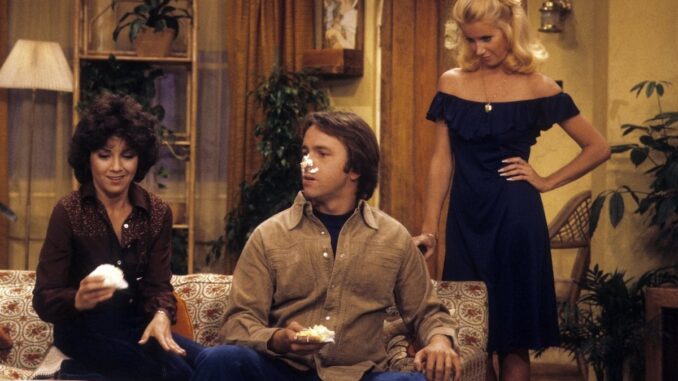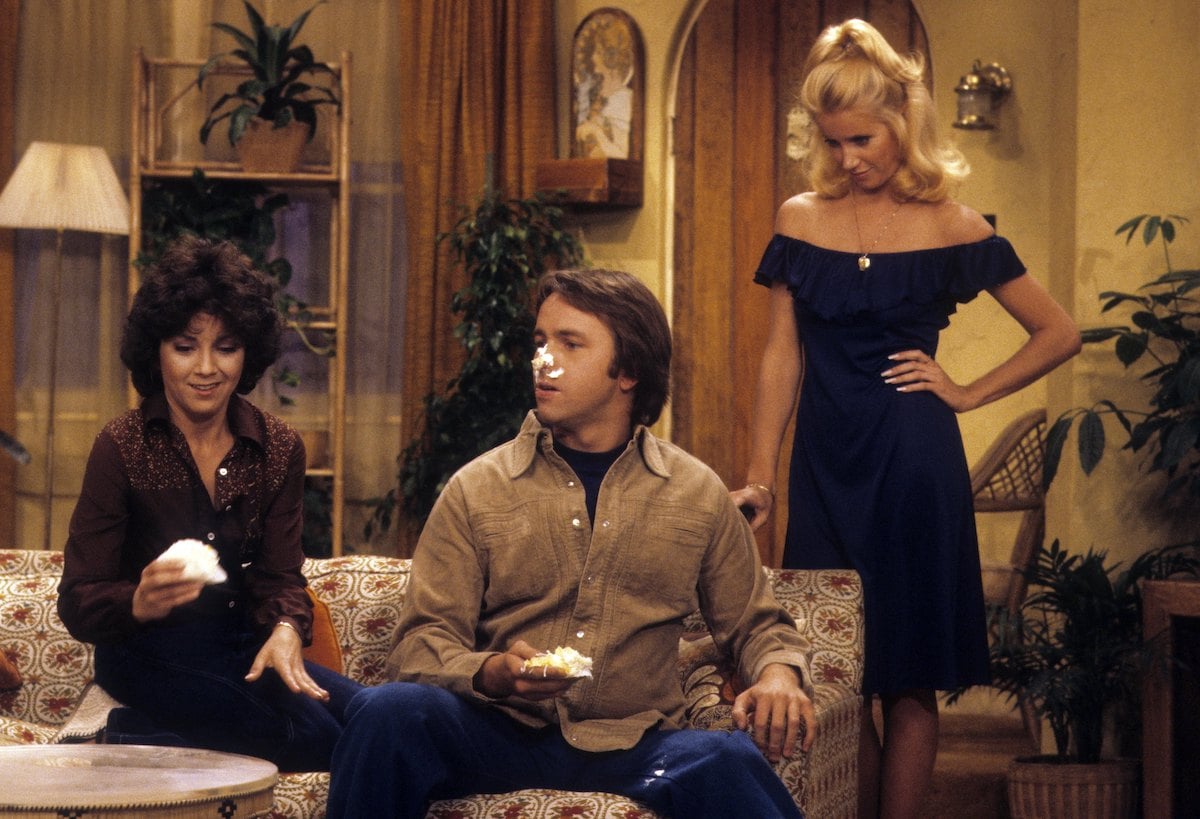
Viewers could argue all day about which era of television has been the best, but there are definitely series in entertainment history that seem to have an enduring quality. Many classic sitcoms would never be allowed to air today — the times they have a-changed
Still, they have a nostalgic quality and often continue to live on through syndicated reruns or even as revivals — with the necessary updates to make them acceptable to modern audiences. Three’s Company is among the classic sitcoms that have helped pave the way for contemporary shows in the genre. The series had a relatively long run and a star-studded cast, so what brought it to its end?
‘Three’s Company’ has an outdated premise

The premise of Three’s Company, which premiered in 1976, was that three friends with no romantic connections wanted to save money by rooming together in pricey Santa Monica. Jack, Janet, and Chrissy found an apartment to share, but the idea of a man and two women living together was scandalous to their landlords. In order to keep things working smoothly, Jack (John Ritter) pretended to be gay.
In some ways, the series’ storyline was rather progressive. After all, it was much less common in 1976 America for a gay man to be open about his sexual orientation, but the idea that a landlord would not allow roommates of the opposite sex to live together was a rather regressive concept. Furthermore, many of the show’s laughs revolved around innuendo and mistaken assumptions that would likely not go over as well with modern audiences.
